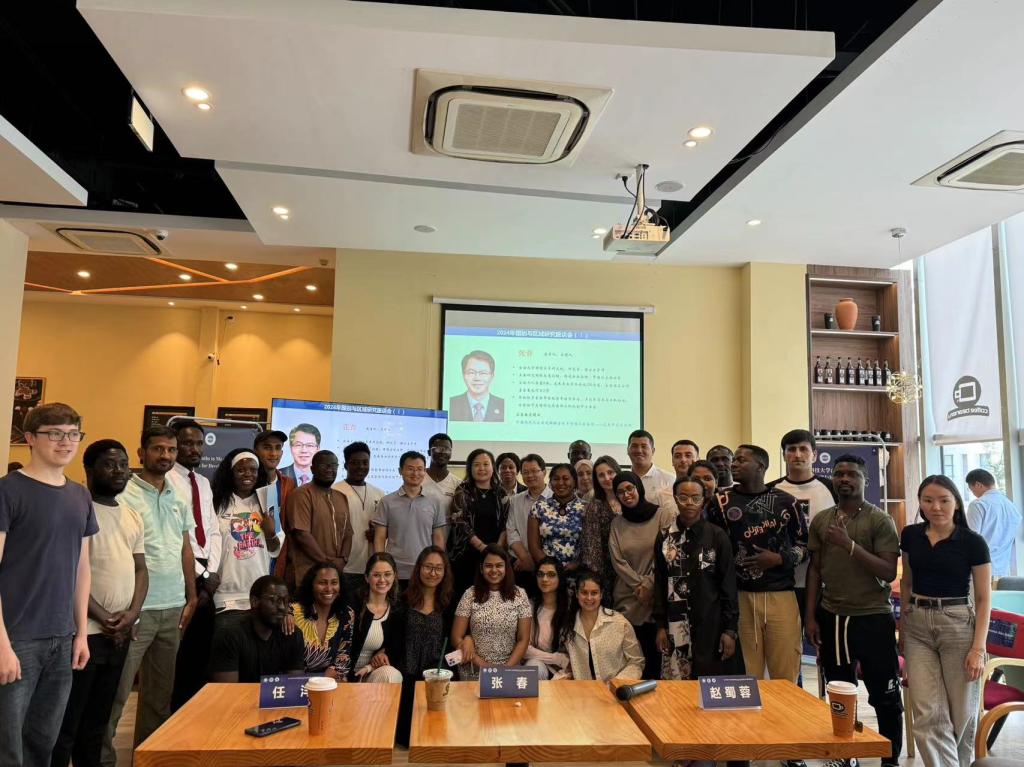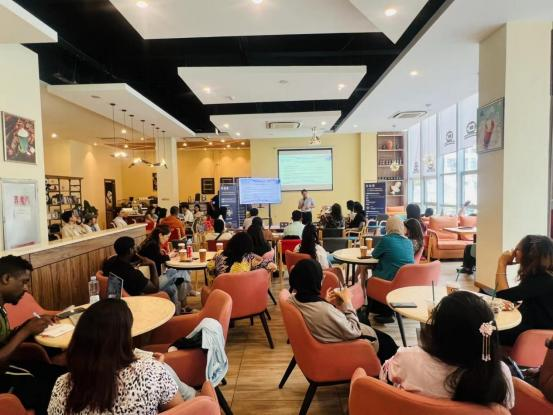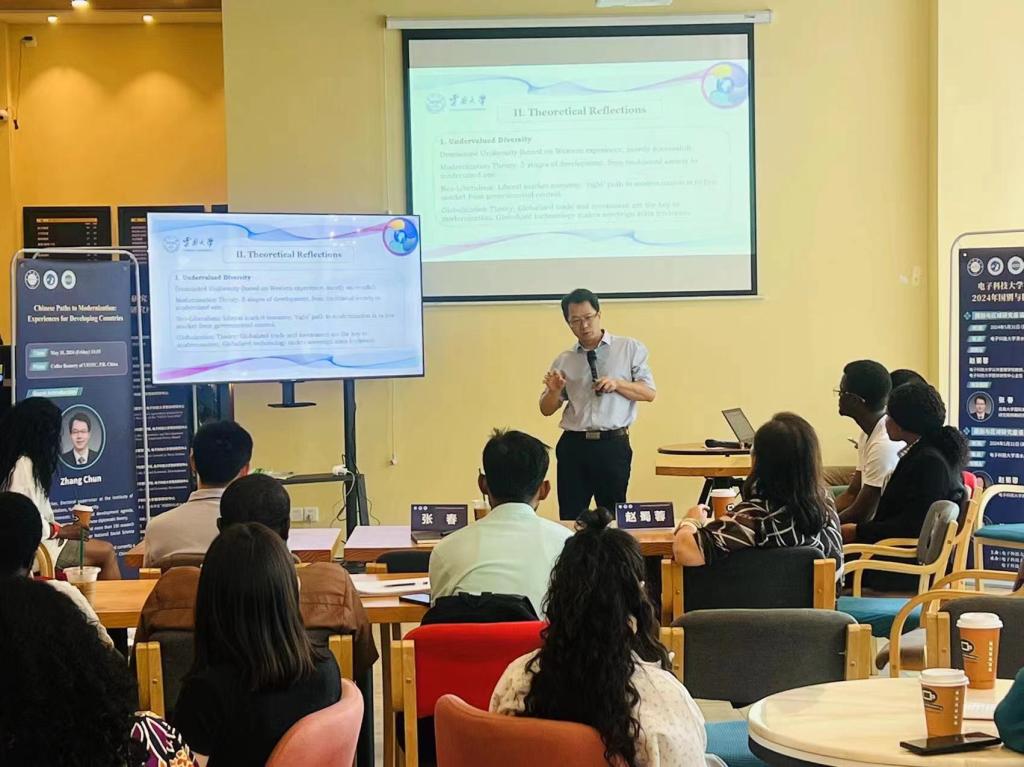On May 31, Excellence Scheme of China Program Chinese Government Scholarship Series of National Education Activities——Academic Workshop, organized by the School of Public Administration, UESTC and undertaken by CWAS of UESTC, was successfully held. Professor Zhang Chun was invited as the keynote speaker shared "Paths to Modernization: Experiences for Developing Countries".

Professor Zhang Chun, Professor at the Institute of International Relations, Yunnan University, delivered a presentation titled "Paths to Modernization: Experiences for Developing Countries". This national education activity, held in the form of an academic lecture, aimed to cultivate international talents who are knowledgeable about and friendly towards China. The lecture was attended by all the School's outstanding scholarship international students with the scholarship and representatives of international students from various schools.
Professor Zhang Chun emphasized that the rise of developing countries underscores the diversity of modernization processes. To advance the modernization of developing countries, particularly the less developed ones, it is crucial to identify the commonalities and differences in their modernization paths. This requires exploring various aspects such as development consensus, motivation, and resilience to foster experience sharing and joint development.
Firstly, development consensus highlights the leading roles of political elites in consolidating consensus, building national strategy, and convincing public participation and trust. Secondly, development motivation reveals the driving forces behind modernization, resource allocation to enhance development outcomes, and balance between attracting foreign investment with avoiding dependency. Lastly, development resilience requires economic diversification, the sustainability of reforms, and the capacity to withstand shocks.
In the process of China's modernization, the Communist Party of China (CPC) has played a pivotal leading role, always adhering to a people-centered approach and steadfastly following its own path. From the Four Modernizations to the Two Centenary Goals, every effort led by the CPC and the Chinese people has been directed towards building China into a a great modern country and realize the great rejuvenation of the Chinese nation. Modernization efforts have always centered on the people, achieving the first Centenary Goal by building a moderately prosperous society in all respects and historically eradicating absolute poverty. Endogenous-driven development aims to achieve the autonomy of modernization. Chinese modernization does not replicate the Western path but explores and finds a path that conforms to China's national conditions, thereby realizing the great rejuvenation of the Chinese nation.
In the process of modernization, African countries should also give full play to the role of leaders, set the priorities of national strategies, coordinate the AU Agenda 2063 and the UN Sustainable Development Goals, put people first, and address the problem of unequal distribution of the fruits of development. In the process of modernization of African countries, the positive role of traditional authority should be recognized in the independent development of African countries. In optimizing resource allocation, we should bring into play the role of AU Agenda 2063, especially the African Free Trade Area. When it comes to balancing attracting foreign investment and avoiding dependence, we should focus on balancing stability and security, reform and governance. Finally, we will make development more sustainable through gradual reform.
In the modernization process, African countries should also give full play to the role of their leaders, set national strategic priorities, and coordinate the AU Agenda 2063 and the UN Sustainable Development Goals. They must adopt a people-centered approach to address the issue of unequal distribution of development outcomes. In their modernization efforts:
l For development autonomy, the positive role of traditional authority should be recognized in the independent development of African countries.
l To optimize resource allocation, the role of the African Union's Agenda 2063, particularly the African Continental Free Trade Area should be leveraged.
l In balancing the attraction of foreign investment and avoiding dependency, balancing stability and security with reform and governance should be focused on.
l Ultimately, development sustainability should be enhanced through gradual reforms.


Zhang Chun,
Professor and Ph.D. supervisor, Institute of International Relations, Yunnan University.
Research Interests: international development agenda, cross-boundary security governance, and Chinese diplomatic theory.
Publications: 8 monographs and more than 150 research papers, and principal researcher for National Social Science Fund 2 key research projects.
Professor Zhang used to be a visiting scholar to several top global think tanks, and currently serves as a Chinese member of the China-US International Development Cooperation Track II Dialogue.